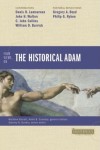This year marks the 200th anniversary of one of my favorite books – Mary Shelley's Frankenstein. Actually, its full title is Frankenstein: Or the Modern Prometheus. And that is a good reminder that this novel is really about Frankenstein the man, not about his creation. Frankenstein is the one who steals from the gods (God?) the ability to create life from that which is lifeless. And, as long as we are clearing up misconceptions, the novel is not about re-animating the dead, as is often popularly shown in the movies, … [Read more...] about Book Review: Frankenstein
Creator
Owning education
The Marks of a Christian Teacher: A Vocational Description (Part Two)[1] Mark Eckel, ThM PhD, Professor of Leadership, Education & Discipleship Capital Seminary & Graduate School, Washington, D.C. The true function of the teacher is to create the most favorable conditions for self-learning. True teaching is not that which gives knowledge, but that which stimulates pupils to gain it. One might say that he teaches best who teaches least.[2] “I do not want you to believe anything I tell you.” My mantra was … [Read more...] about Owning education
What about Adam and Eve? Part 1
Introduction This is the fourth in a series of blog posts concerned with Christian questions about evolution. One of the biggest dilemmas is what to do about Adam and Eve. Were they real people? How were they created? Was Adam the father of all mankind? What about the story in Genesis 3 of the fall of Adam and Eve and consequently all of mankind into sin? Do the creation stories in Genesis communicate real, historical events or are they myths that God is using to communicate timeless truths? These are … [Read more...] about What about Adam and Eve? Part 1
Getting a “Big Head”?
The Marks of a Christian Scholar: A Vocational Description (Part One) Mark Eckel, ThM PhD, Professor of Leadership, Education & Discipleship[1] Capital Seminary & Graduate School, Washington, D.C. “The Christian scholar-teacher must be a person who believes in Christian higher education, who is committed to the mission of his or her institution. It is not enough to hire faculty who happen to be Christians, even if they are fine scholars. We must find and keep faculty who are committed to the project.” … [Read more...] about Getting a “Big Head”?
Is Evolution Compatible with belief in God as the Creator?
This is the third in a series of blog posts concerned with Christian questions about evolution. In my last post we saw that science does not rule out God because it is not competent to address the question of God. But, is evolution compatible with belief in God as the Creator? That is the topic of this post. A major concern for some Christians is that there is no need for God in the process of evolution. Ironically, this is also the view of atheists. In his book The God Delusion, the atheist biologist Richard … [Read more...] about Is Evolution Compatible with belief in God as the Creator?




